|
Some say homeschooling is only for the younger kids in the elementary or middle school, but high school homeschooling is also a very popular educational choice. Only this time, the decisions lie in great part with the students themselves.
This post may contain affiliate links, which help support this website. We thank you for your consideration and your support. Most that homeschool in high school are teenagers who cannot take the pressures at school, especially those of peer pressure and bullying. Others cannot catch up with the lessons and curriculum programs of regular schools or would like to start early in life through training, internship and community volunteering jobs that would help them be knowledgeable and prepared for the struggle outside the four walls of their school. Still others have been homeschooled their whole lives; why stop now? Choosing the suitable curriculum for teenagers for high school is very important. There are a lot of materials or support they can get especially on the Internet. They can talk to other homeschoolers in established groups through message boards, forums and chats to build a network. Homeschooling sites are also all over the net; they can browse through these sites, find an established support group in their area, get some catalogs and enroll in a curriculum or they can create their own study program. Co-ops are equally as important. This is good for those students who have very supportive and open-minded parents. But in case there are none and the student is left to carry out his curriculum by himself, homeschooling helps students to stand up and depend on themselves because one thing that is developed within is good independent study skills and more as they engage in continuous studying on their own. In choosing the homeschool curricula, it is best if teenagers are present and take an active part in deciding which curricula to choose that would best apply to their learning styles and abilities. It's good for teenagers to create their own course of study. In this way, students will have good choices of activities which develop every aspect of their personality instead of just choosing a fixed program. There are different approaches to choose from and combine that would help in the holistic development of the student. For high school, homeschooling can help them start in life and make a step forward through practical trainings and internship programs depending on the specialization they like to pursue. They can actually be successful in what they want and might do best in the future. For more information on homeschooling in high school, please visit these sites below: Electives to Teach Why You MUST Teach Entrepreneurship in High School Teach Your Teens to File Their Taxes Life Skills to Teach Your Teen: Event Planning 101 Student Blogs: Why Your Teen Should have Their Own Blog Homeschool High School Speech and Debate - 4 Frugal Resources Preparing for College Preparing Your Homeschooled Teen for College Transcripts Assigning Grades for Homeschool High School Transcripts Assigning High School Credit and Planning High School at Home Summer Plans 101 Things for Teens to do in Summer Balance Balancing Academics and Fun in Homeschool High School Thinking about After High School Steps to Choosing the Right Degree After High School Life After High School: Navigating Your Next Steps After High School General / Planning High School Homeschooling High School--Relax, You CAN Do It! Homeschooling High School/5 Tips to Get Ready for the New Year/Special Needs High School High School Archives by Year Round Homeschooling An Authoritative Guide on How to Homeschool High School Should I Homeschool My High Schooler? Curriculum Our Frugal High School Curriculum Choices Homeschool High School English - Make Your Course YOUR Own Affiliate Resources 7 Sisters Homeschool (many, many high school curriculum resources) Hundreds of high school courses at Schoolhouse Teachers
0 Comments
In the spring and summer, homeschooling content creators call this "convention season" and it's for good reason. There are so many homeschool conventions, conferences, expos, and days scheduled all over the country during the spring and summer that it warrants its own season.
This post may have affiliate links to homeschool conventions that help fund this website (and give you a good deal, as a coupon is included). We appreciate your support. What does this mean for you, a homeschooler? It means that if you have any question about homeschooling, there will be someone at a homeschool convention that can answer that for you. If you're thinking about changing curriculum, you can browse, look through curriculums--even talk to the curriculum creator in a lot of instances. Here are nine reasons why homeschooling families should attend homeschool conventions: 1. Speakers The first reason is the large variety of homeschooling speakers who pour out their expertise in sessions that are designed to help you and your children. There are keynote speakers that have been homeschooling for years (sometimes decades) and are fighting for you and your children on the national level. They have more encouraging knowledge in their little fingers that most have in their whole hand. Last year's Teach Them Diligently in Pigeon Forge saw Kirk Cameron on stage, then Heidi St. John, and other powerhouse proponents of homeschooling. In smaller sessions you have homeschool content creators, curriculum writers, bloggers, and other homeschoolers who know what they're talking about, and give you that knowledge--and are often free right after the session for a few minutes or available in their booths to talk one-on-one with you. I know that after my session on special needs children last year at Teach Them Diligently-Pigeon Forge, I had a number of parents come to my booth to ask me specific questions about autism, ADHD, and other learning difficulties. They walked away with not only helpful information but also my card for further assistance. Many speakers are like that--or have resources that will help you in your homeschooling journey. Tip: Bring a notebook to write notes, ideas as they come to you in sessions, questions to ask, booths to visit, etc. When you meet another homeschooling family and your families click, use your notebook to write their contact information down. 3. Phenomenal Sessions Every homeschool convention company works tirelessly to bring in speakers who know what they're doing, and have something to say about it, and because of that, participants enjoy phenomenal sessions about a wide range of topics--from Homeschooling 101 to homeschooling special needs kids, to discussing government interference, and everything in between. You literally can gain a wealth of knowledge about homeschooling, and so can your kids. There are many sessions that relate to teenagers, such as choosing a college, or developing your high school transcript (your teens should go to these!). Every convention is different and offers a different slate of topics from which to choose. 3. Exhibit Hall Here's where it gets fun -- and sometimes, overwhelming. There are so many booths exhibiting curriculum, curriculum helps, books, toys, opportunities--that it can get to be a bit much. Take your time, go through each aisle, making note of booths you want to come back and visit later (preferably, by yourself, while your husband or wife watches the kids out in the reception area). I encourage you, if you and your spouse go to homeschool conventions together with the children, to give each spouse an opportunity to wander the exhibit hall alone. Last year, while I worked my booth at Teach Them Diligently-Pigeon Forge, my husband wandered the hall. He came back with a newfound love of homeschooling (yay!) and a lot of resources for our homeschooling daughter. Also, go through the aisles with the children, too. They may see something that encourages them. Plus, it's great to see other homeschooling children and know they're not alone. TIP: Wear very comfortable shoes. Leave the cute heels and flip-flops at home or hotel, and wear your sneakers. You will walk more than you think you will. 4. Children's Programs Many homeschooling conventions will offer childrens' programs for little ones, elementary age, even middle school. When your kids get to be in high school, they can offer volunteer at these childrens' events (especially for Teach Them Diligently events). At some conventions, homeschooling high school graduations are held. Don't be afraid to let your kids be a part of the childrens' programs -- it gives them something to do, new friends to make, and gives you the opportunity to go to the sessions and exhibit hall in peace. Tip: If allergies are a concern, simply pack your child's lunch and snacks, and make sure the staff knows about them. If your child has special needs, make sure the staff knows that, too. 5. Meeting Other Homeschoolers Meeting other homeschooling families is a huge plus when attending homeschooling conventions. You realize you're not alone, and you can bounce ideas off one another. It's a great time of fellowship and meeting new friends. 6. Meeting Homeschooling Content Creators Where else but a homeschooling convention can you actually meet Linda Lacour Hobar, the author of The Mystery of History, and talk with her one-on-one about history and what you liked about the curriculum? You can meet the very people that create your Bible devotions at the Not Consumed booth! You can meet me! I'd love to meet you and show you all the new things that are in my booth this year (you can preview them here). TIP: Homeschooling creators work long hours to create and curate the things you see in their booths. The booths are not cheap, and they're certainly not free. Please do homeschooling content creators a solid and bring either cash or credit cards (most accept both or either) and buy something. It's a kindness--and keeps us going. 7. Buying Next Year's Curriculum Often, you can find incredible deals on your favorite, or a new-to-you curriculum at conventions. Come armed with the credit card and go ahead and purchase it, taking advantage of any sales thay may be going on. Often (but not always), homeschool curriculum creators can ship the materials to your home so you're not lugging around 72 pounds of books throughout the exhibit hall. TIP: Sometimes you'll buy a book and it'll weigh a good bit. Some conventions give swag bags but they're not hefty enough to carry a bunch of books. Bring a hefty totebag, an extra stroller, or something to carry your loot. Last year a family brought a wagon -- had their kids on each end and their haul in the middle. It was fantastic! 8. Traveling [according to my daughter who was scientifically polled for this article (meaning she walked in while I was writing and I asked her what the biggest benefit to going to homeschool conventions was to her)], is a side benefit of going to homeschool conventions. When you travel to a distant place for a convention, make it a fun time. Pigeon Forge (where Teach Them Diligently will be at this year) offers a huge amount of things to do besides going to the convention. Where else can you visit a Titanic exhibit, see a building with King Kong on it, and visit an upside-down house? We've stopped at educational and fun places on the way to a convention in Texas -- it breaks up the trip and adds a fun element to homeschool conventions (and makes that more educational). 9. Rededicating Your Family to the Homeschool Ideal One of the most important aspects of going to a homeschool convention is the energy and confirmation of the "why" we homeschool. If you're teetering on the brink of giving up--by all means, go to a homeschool convention. Between the speakers, the keynotes, the sessions, meeting other homeschoolers, and exploring the booths in the exhibit halls, you will gain a new perspective on homeschooling and maybe recommit to it. It's important, especially in the culture in which we live as Christians, to see the importance of homeschooling. Attending homeschooling conventions can do that. TIP: The food in convention venues is often pretty expensive. If you can (according to venue policies), pack your family's lunch. If you can't (because of policies), find a hotel near by in which to stay, and leave for an hour for lunch in your hotel, and come back. Or, keep the cooler in your car and go out to your car for lunch. Here's another tip: after a long day of conventioning, most of the time you just want to go back to the hotel. Bring a slow cooker with you from home, start it in the morning, and by the late afternoon and evening, dinner is ready for you when you get back to the hotel. Throw the kids in the pool, then shower everyone--it'll be an easy bedtime for everyone, just to get up the next day and either convention some more, or get on the road back home. Happy Homeschooling! ~ Terrie (C) 2023 Terrie Bentley McKee ALL RIGHTS RESERVED
I am in a number of social media homeschool groups, and one question I see over and over from new homeschoolers is this: what is the best curriculum to use for my child? Here's the quick answer: there isn't any, and they all are. Here's the long answer: The best curriculum is one that you choose for your child, based on your child's developmental needs and abilities. With that being said, let's explore how to choose the best homeschool curriculum.
This post may contain affiliate links. As an Amazon affiliate, I earn a small commission from purchases made using these links. In addition, all curriculum suggestions are personally vetted by me and my daughter. Encourages Learning This may be a "duh" point but you want your curriculum to not be boring. If you get bored reading it (and I encourage you to read a couple pages, and skim through an entire book before purchasing any textbook), then your child will be bored--and you don't want that. You want the curriculum you choose to encourage your child to want to learn about the subject matter, whether that's math or history. Children have an innate curiosity about them, and the curriculum you choose should present insightful text, questions that make your child think, and the potential for additional projects, papers, or problems to solve. Any curriculum you choose for any subject should spur in your child a love for learning. The Charlotte Mason homeschool method utilizes the addition of living books, which are engaging books that bring the subject alive. Any time you supplement any curriculum you purchase using living books, you add a deeper level of understanding into the subject matter. SUGGESTIONS: I really like the history curriculum from Notgrass History, due to the amount of possible projects and other assignments. I also really like Rabbit Trails Homeschool's history curriculum, because it's literature based using living books (take 10% off with our coupon code H1C). Rabbit Trails' science curriculum is top-notch, as well. For Bible studies, I love Not Consumed's studies, which combine biblical truth with practical teachings (I also love their student planner!). Everyday Graces Homeschool has beautiful Charlotte Mason-inspired studies. Teachability Not only should the curriculum encourage a love of learning for your child, but it should also be fun to teach. When you learn as the teacher along with your child, you're more invested into the curriculum and in your homeschool. If the curriculum is too hard to teach, you're not going to enjoy it. I have used curriculum that had great information, decent workbooks, but were tedious to teach. On the other hand, I've used old-school textbooks that had the text in smaller chunks with questions to reinforce retention. If you use textbooks that have a large amount of text, I suggest you break it up into chunks for your child, and if the workbook doesn't have questions for retention for that section, make up your own questions. I've done this many times. Realistically, you are the teacher. so you can create questions, you can download worksheets, whatever you want to do. There are many resources that you can use to supplement your curriculum and help in teaching, such as the following:
SUGGESTIONS: Schoolhouse Teachers makes it easy to teach due to the scopes and sequences are laid out for each course. Many courses are taught via video, and others lay out the courses for you. Plus, if you join as a Silver member, you gain many benefits, such as the AppleCore program. This online program gives you the ability to track attendance, grades, report cards, and transcripts. I have also used old school textbooks that I purchased at a significant savings from Ebay.. Ownership Before the start of a new school year, before we buy curriculum, my husband and I always ask our daughter what she wants to learn in history and science. This ability to choose provides a sense of ownership and buy-in with your child. If your child wants to have a say in his or her education, by all means, let your child have that freedom, but within reason. Often, especially for science, all it takes for buy-in is to involve your child in science labs. A good source for labs (and homeschool curriculum) is Home Science Tools. For both science and history, field trips are often incredible ways to make the subjects come alive for your child. Allow your student have some say in field trips, but always follow up with the field trips by asking what your child learned or have them complete this field trip report. Developmental Needs and Abilities In choosing your homeschool curriculum, one thing you must do is take into account your child's developmental needs and abilities. You can use the math placement tests from Teaching Textbooks to discover what exact level your child is on, and adjust accordingly. Sonlight also has placement tests, not only for math but for reading and language arts, as well. If your child has special needs, you will want to teach him or her based on their developmental level -- not based on age or technical grade. You can teach subjects on different levels, for example, if your child is 12 years old and technically in the seventh grade, but because of her ADHD or his autism is developmentally in the fourth grade in language arts and tenth grade in math, teach the child on the developmental level. If your child is in the ninth grade by his age but developmentally in the third grade, teach him in the third grade. In this case, I would also strongly consider adding life skills to his curriculum and not force the academics too much. Meet his needs where they're at, but don't frustrate him--or yourself. Catalogs While you're on Sonlight's website, go ahead and order their catalog. Do an Internet search for "homeschool curriculum provider" and order all the catalogs you can. Using these, you can get an idea of scope and sequence, what they offer, what you can offer in your homeschool, and what electives exist. Apologia has free homeschool resources on their resources page, such as a homeschool curriculum planning guide, podcasts, and videos to help you in the homeschooling journey. Homeschooling is a very individual thing, and you can't have a one-size fits all approach to it. What works for my homeschool (and therefore is my "best" homeschool curriculum) may not be a good fit for your homeschool, and therefore would not be your "best homeschool curriculum." The best thing to do is to examine first why you're homeschooling, what your goals are as a homeschool and for each individual child, and choose curriculum based on your family's lifestyle and goals. For my family, we travel a good bit for my husband's wheelchair basketball team (you can see why he's in a wheelchair in this book) so we do a good bit of roadschooling, or homeschool on the road, so an online curriculum wouldn't work for us.. You may have a very strict homeschool budget, and need to find online resources that would be easy to teach, encompass all the subjects, yet be affordable (you can totally do that, too!) and can't buy a total big-box curriculum. There's nothing wrong with buying workbooks that you find at discount stores or at teacher supply shops and using those. Be sure to read my blog post on homeschooling on a budget! No matter the homeschool curriculum you choose, remember than you are homeschooling-- the emphasis should be on the relationships you have with your children and building them up while learning. Learning doesn't just happen with books; it happens while you're cooking or cleaning the house, while your husband engages with your child and teaches her how to change the oil in the car, or how to make doctor appointments. It's about doing life together. All my best, Terrie (C) 2022 Terrie Bentley McKee ALL RIGHTS RESERVED Buying homeschool curriculum can get expensive in a hurry. There are ways that you can purchase curriculum on a budget, however. Here are some tips and resources to show you how.
Affiliate links are used on this site. As an Amazon Associate, and affiliate of other companies as well, I earn from qualifying purchases. Read more in our disclosure. Deciding what our child needs in curriculum is the first step. Accessing scope and sequences of grades and curriculum can be done through curriculum company websites or their catalogs. Many companies, like Teaching Textbooks, offers free math placement tests so you can determine exactly what is your child's level. Apologia offers this free curriculum planning guide. The second step is determining a per-child curriculum budget. Don't be afraid to splurge on hardback, reusable books if they will be used by younger siblings. If you decide to use spiral curriculum or workbooks that are generally written in, either copy the pages or have the student write out the problems on notebook paper, leaving the workbooks free from marks. This way, younger siblings can use them (or you can sell them at either curriculum fairs or consignment shops). Curriculum Fairs / consignment shops This is where a simple search on the Internet with your town or city name comes in very handy. Search your town, with adding "homeschool curriculum fairs" or "homeschool curriculum consignment shops" in the search bar. You can gain some really good curriculum at fairs and consignment stores, but make sure you look through the books. I once paid for a science workbook that looked good for the first few pages, but then as my daughter worked through the workbook, the name "Ryland" was on every single page, and crossword puzzles were already completed. Buyer beware: just look through every page in workbooks , especially. Thrift stores You may need to go often, but you can find some bargains in thrift stores' book sections, especially if you're willing to keep an eye out for curriculum to be used later. I once found a high school economics books at a thrift store and snatched it up. Sure, my daughter's going into the seventh grade, but it's certainly something she can study as a senior in high school, and it was less than $2! Thrift stores are also good places to buy literature or living books. If you happen to find a set of encyclopedias, buy them; even though we have the Internet at our fingertips, there's something to be said about reading and using an encyclopedia for resources. Bargain stores You know the type: they're not exactly big-box stores, and they have seconds of products most of the time, but if they have a good book section, you can find some great workbooks, literature, and sometimes curriculum there. Homeschool supplies like crayons, paper, scissors, are often good deals, too. EBay We often think of Ebay as being a source for when we need a weird part for something (I'm currently in the market for a missing lid to my husband's favorite rice cooking pot). However, I have purchased many older school books for my daughter. As a homeschooler who refuses to teach Common Core, math textbooks from the early 2000s are perfect. Instead of a hundred dollars, last year I spent a little over $5 for Laura's math textbook. Be sure, in the Ebay search bar, you specify what you're searching for, such as "grade 6 math textbooks," or "grade 4 spelling textbooks." Use the link in bold above to access Ebay's math books, and you can search for other things, too. Curriculum Providers Since the summer is curriculum buying-time, you can often find some good deals on curriculum and/or shipping. Apologia is offering free shipping on orders over $150 right now. Notgrass History offers first-rate history textbooks for all grade levels plus a great deal of general homeschooling resources. One curriculum creator, Rabbit Trails Homeschool, is launching new curriculum on July 1. She is having a party inside of her Facebook group, Relaxed Homeschoolers, The Rabbit Trails Way. During this party, she will be sharing all of the new releases, there will be giveaways, sharing new freebies, and there will even have an exciting flash sale opportunity. Don't miss this -- make sure you join the group today so you won't miss it. In my own store, you can buy my newest study, Gospel Grammar, at 22% off with the coupon code Summer22 (along with everything else in my store, as the sale is storewide). Gospel Grammar is a Bible study about grammar, and a grammar study about the Bible. You can find curriculum creators on Facebook (just do a search for one you're looking for) to access deals they have going on. Amazon Amazon is not who we usually think of when it comes to homeschool curriculum, but they have a ton of curriculum available, in addition to supplies, computers, printers, and laminators.. Right now they have a lot of brand-name curriculum on sale for upwards of 20% off. Be sure to access this direct link for homeschool curriculum. Budgeting Once you have a list of subjects you want to do with your child, make a list of curriculum providers. Some providers provide all-in-one curriculum packages that include everything. A lot of that depends on your child. If your child is at grade 4 in math but grade 6 on everything else, ask the curriculum provider if you can switch out grade 6 math for grade 4, for example. Or, you can tailor-make an eclectic curriculum for your child using many different sources. Once you have a list of curriculum and/or subjects, you can use this handy homeschool curriculum budgeting tool to help you keep track of costs. Don't forget to count music lessons, sports, and other extracurricular activities in that, as they also can count for homeschool (handy info to have for attendance records!). Websites I have a number of free or low-cost websites I use a great deal in homeschooling my daughter. These websites either supplement her curriculum by way of worksheets or online games, or I use them as curriculum. I pay to use Education.com so I can utilize their word search and crossword generators for spelling. This website's annual plan is under $10 a month; paid monthly, it's $15.99 a month. I don't know about you, but $119.88 is a lot better than $191.88. I use this website every single day--and Laura loves the educational games that I can assign to her to complete. Disclosure: I am not an affiliate of Education.com. Another website I use often, that I am also not an affiliate of, is Teacherspayteachers.com. You can search for free worksheets, and have a wealth of worksheets at your disposal, or you can pay per download for more expensive worksheets, lessons, projects, and other resources. One website of which I am proud to say I am an affiliate, is SchoolhouseTeachers.com. Right now, through June 22, they are having a membership sale of less than $16 a month. Members receive a great deal of benefits, including a printed magazine, free access to hundreds of full courses and unit studies, record keeping resources, lesson plans, scope and sequence information, and a full curriculum for every grade. My daughter wants to do unit studies for science when we start back up September 1, and we're going to do that using SchoolhouseTeachers.com's incredible science unit studies. Plus, all members become automatic affiliates, so if you really like it, and share your affiliate link with your homeschooling friends and on social media, you can make some money, too. Homeschooling can be an expensive endeavor--but it doesn't have to be. With a little creativity, asking the right questions, and looking for deals, you can find curriculum to teach your child without spending a ton of money. Don't forget to search for "homeschooling" on Facebook Marketplace--you will be amazed at the deals you can find there. Happy Homeschooling! ~ Terrie (C) 2022 Terrie Bentley McKee ALL RIGHTS RESERVED
Buying homeschool curriculum can be an extremely expensive endeavor--complete, in-the-box, grade kits, or various textbooks for various children. Even if you're homeschooling one child, purchasing year-long curriculum can shrink the bank account.
My husband is the main provider of our family, so we're basically on one income while homeschooling our daughter. We have learned a number of ways to acquire homeschool curriculum on a budget, including shopping at thrift and consignment stores, online, and other ways. This post may have affiliate links. These links direct you to products and publishers that have helped me in my homeschooling journey. When you click on and purchase something using these links, I receive a small commission at no charge to you. Thank you for your support. Homeschool Coupon Book Spring Group Giveaway Who doesn't need a bit of PayPal Cash and Homeschool Supplies? A group of bloggers has come together to offer a $220 value giveaway. The winner will receive PayPal cash to spend on Homeschool Needs and Homeschool Supplies that anyone will enjoy in their homeschool. We are choosing the supplies we love best or wish we had!! It's going to be a surprise you don't want to miss out on!! If you enter this giveaway, you will be added to the following email lists: Jus Classical, Peace Creek on the Prairie, Townsend House, BJs Homeschool, The Art Kit, Homeschool Coupon Book, Grapevine Studies, Jen Dodrill History, Brookdale House, and Homeschooling One Child. Enter below! Thrift Stores Where I live, we have a number of thrift stores such as those that support ministries like the Salvation Army and Habitat ReStores, that support Habitat for Humanity. These thrift stores vary greatly depending upon store, management, and locale, however, if they sell books, you stand a very good chance of finding quality (albeit used) curriculum. They may not be the newest publications, but usually with things like grammar, mathematics, literature, and Bible, it's okay. With math, unless you want to go the Common Core route, it's best to have older textbooks. Inventory is never predictable, and you almost have to go weekly to look at what they received in donations and put out to sell on the floor at any given time. At my local thrift stores, I have found LifePacs Bible curriculum, complete, for eighth grade (which I bought and put in my "future curriculum" tubby (that would be a suggestion, for you, too). I have also found a government / civics textbook that, although old (2008), the basic foundation of government is addressed in detail with questions to answer. That went into the future curriculum tubby for ninth grade. I have found living books that covered our study of Ancient History this year, and other living books and resources for our study of Human Anatomy and Physiology for next year. I have found literature textbooks and literature reading books (we're going to study literature next year after three years of grammar). Now, at these thrift stores, no book was over $2. At one thrift store, they were having a Bag of Books for 5 Bucks sale, so I stuffed that bag full of textbooks, readers, resources, you name it. Consignment Stores If you live in an area, like I do, that is blessed with a homeschool consignment store, I'd use homeschool curriculum catalogs to decide what subjects I want from what homeschool publishers, and I'd head to my homeschool consignment store with a list in hand. Even if a curriculum is not the newest publication, it still has relevant information. You can always supplement with newer material you find on the Internet. I have saved hundreds of dollars by utilizing both my local homeschool consignment store and consignment sales that happen in the community that offer books and homeschool material. When I bought Laura's 5th grade curriculum (a hodge-podge of different publishers because we're a Charlotte Mason / eclectic / traditional homeschool), I bought over $900 worth of resources for $74. No kidding. And much of it we will reuse, with harder supplemental material for later grades. If your local library has a Book Sale, absolutely attend that (bring a box or large bag for your acquisitions). Any non-fiction book that covers history or science (be mindful it aligns with your worldview) can be a textbook: read the chapter you want your child to read, and write out questions to be answered. Or, like I do with my daughter: she reads a section, and I ask her to write out what we call "Five Facts." These Five Facts are used for her to study and are written on the unit test. Again, inventory is wildly varied, but if you can find copies of well-known literature books, there are certainly worksheets to be found on the Internet for that book. Or, have your children write book reports on them. Library While we're on the topic of libraries, you can teach all subjects with just your library card. From preschoolers and kindergartners where you're reading to them, introducing letters and numbers, and allowing them to learn via play, to elementary school and beyond -- if you have no budget for an actual, store-bought homeschool curriculum, use the library. From literature to grammar, science to history, and everything in between, you and your child can read a book together, then create or print worksheets off the Internet, or develop projects or written reports. EBay I have a confession: I refuse to teach my daughter Common Core math, so I purchase older (early 2000s, before Common Core came into fashion) actual math textbooks, in which she uses spiral notebooks to work the problems. I go over the lessons with her, we do some problems together, then she does a section of problems herself. It works, and it has saved me a ton of money on math curriculum. Last year I also bought her science book this way and it went well, too (this year she wanted to learn astronomy). I just purchased her math book for next year. Yes, it's older and a little beat up, but it was less than $6. For someone who will be buying a whole year's worth of curriculum on a tiny budget, I really love spending $6 for a math book. To explore homeschool curriculum on Ebay, or other textbooks, just click here. Online An Internet search of "free online homeschool curriculum" can give you a list of many free online programs, and many families base their entire homeschool on those programs. If you have a Pinterest account, you can use that as a search engine for worksheets on many subjects, and therefore develop a curriculum that meets your budget. There are many homeschooling bloggers who create worksheet printables, curriculum, unit studies, and workbooks who are affordable -- and you're supporting a family, as opposed to a corporation. I've developed a list here for your perusal. I encourage you to check out this extensive list of curriculum, resources, conferences -- all to help you in your homeschooling journey. There are a few websites I use often (but am not an affiliate) in my own homeschool that, truth be told, I'd be lost without. Teachers Pay Teachers,Education.com, and Help Teaching all offer quality worksheets, projects, and unit studies for a wide variety of grades. Help Teaching in particular has a databank of testing questions so you can create comprehension tests on a wide variety of subjects and materials. The most important consideration, besides budget, of a curriculum is to make sure it works -- for your child, and you. We once tried a curriculum that frustrated both my daughter and myself, so we ditched it and found something else. Honestly, it's really difficult to do that when you've paid hundreds of dollars for something. Yes, I would love to be able to afford an entire, boxed curriculum but that's not for us in this season. I encourage you to check out the resources in bold above and find what works best for your child and you. That is, ultimately, one of the best benefits of homeschooling -- the parents and children get to determine what they learn, how they learn it, and from where they learn it. And you get to set the budget. Subscribers to Homeschooling One Child's email newsletter receive a free, homeschool budget planner! To receive your planner, and a wealth of other tips, deals, coupons, and subscriber-only info in the email newsletter, simply subscribe here. Happy Homeschooling! Terrie (C) 2021 Terrie Bentley McKee ALL RIGHTS RESERVED $200 Value Homeschool GiveawayWho doesn't need a bit of PayPal Cash and Homeschool Supplies? A group of bloggers has come together to offer a $220 value giveaway. The winner will receive PayPal cash to spend on Homeschool Needs and Homeschool Supplies that anyone will enjoy in their homeschool. We are choosing the supplies we love best or wish we had!! It's going to be a surprise you don't want to miss out on!! If you enter this giveaway, you will be added to the following email lists: Jus Classical, Peace Creek on the Prairie, Townsend House, BJs Homeschool, The Art Kit, Homeschool Coupon Book, Grapevine Studies, Jen Dodrill History, Brookdale House, and Homeschooling One Child.Enter Below!!a Rafflecopter giveawayThe year 2020 has wrecked havoc on the whole society, but none more so than public school kids and their parents. In the spring they found themselves thrust into doing school at home, away from everything they knew. This also gave parents who were considering homeschooling a test drive without the legalities of actually withdrawing their children.
This post may contain affiliate links. This links are curated by the author to bring you the best deals to help you succeed in homeschooling. I receive a small commission, at no cost to you, when you click on and purchase using these affiliate links. I thank you for your support. Now, it's the start of a new school year. Some public schools are going back in a mish-mash of at-school / virtual learning / hybrid concoctions that confuse even homeschoolers who don't have a child in the school. As someone who's in a couple of homeschooling groups for her state, I've seen the number of people in the group jump over the last six months as people who have kids in virtual public school think they're "homeschooling." No. Virtual public school is not homeschooling. There are many differences between homeschool and virtual public school (done at home) -- and they are not alike. Curriculum Parents do not choose the curriculum for their kids in virtual public school. It's what is assigned by a teacher. With parents now aware of what is being taught in public schools, or told to not listen in, or buy their children earbuds so only they can hear what's being taught -- more and more parents are calling foul. With true homeschool, parents choose what their children learn. Many parents, especially with middle and high school kids, talk with their children on subjects they want to learn. I asked my fifth grade daughter what she wanted to learn about in science this year, and she chose astronomy. She would not have had that choice in public school. Public schools' curriculum is dictated by a standard course of study by each state's Department of Education. This curriculum is often heavily influenced by politics, social justice, and causes that are not necessarily good things. Often, these curricula have a great deal to do with sex education and come with the inability for parents to opt-out their children, if the curriculum goes against the parents' worldview. In homeschool, parents set the standards of what their children learn. They choose the curriculum, based on their worldviews and what they want to teach their kids. Often, in homeschool, kids are exposed to a wide range of philosophies that they can compare and contrast. Many public school systems, especially in more liberal states, have teachers and curriculums that are taught to the kids that emphasize one philosophy or religion over another and downplays the largest religion in the world. For example, some school systems encourage kids to learn about Islam but not Christianity, eliminating teaching whole thought. "Normal" School While browsing in a homeschooling group I'm in for my state, I saw a post by someone who made the comment they're homeschooling now until schools reopen like they were in the past, so their kids can go to normal school. While I get what this person was saying, it sound awfully disparaging. My daughter has learned more in the last three and a half years of homeschool than she did in the two and a half years she spent in public school, simply because the curriculum was taught in ways that she learns best. Our homeschool is best for her, but it is not inferior to an education she would receive if she were in public school. In fact, based on what she learns -- cursive writing, grammar, how to write paragraphs, Bible, math that makes sense -- her education, I believe, is superior to that of kids her own age and grade level. Schedule For my daughter, getting up at seven o'clock and rushing to eat breakfast, get dressed, drive to school, then do all the school things was incredibly stressful. All that, plus the anxiety that came with being bullied due to having dyslexia, was just too much for her. She has chronic migraines, diagnosed at four years old, and she would have upwards of 15 migraines a month while she was in a public school setting. Since she's been in homeschool, she gets up between eight and nine in the morning, has breakfast and takes her meds, then eases into the school day with Morning Basket time. During Morning Basket, we cuddle on the couch and I read pages from two books: Bible Stories for Courageous Girls and The Story of the World: History for the Classical Child. Easing into the day by reading these books that encourage her in her faith and tell a story about the period of history she's studying reinforces key concepts and starts the day off on the right foot. Since we've been homeschooling and incorporating relaxed themes, she has had maybe five migraines in three years. Eliminating stressors have helped her anxiety a great deal. Homeschooling on our schedule enables us to incorporate learning into family trips. My husband plays wheelchair basketball, and last year we had the opportunity to travel to Wichita, Kansas for the championship games. Along the way, we incorporated homeschool into the trip by spending time at the Laura Ingalls Wilder Homestead in Mansfield, Missouri; the Ulysses S. Grant Home and the Arch in St. Louis, Missouri; and walking along the Mississippi River. We listened to Little House series on audio books all the way there, and all the way back. Visiting the Wilder homestead and museum after listening to her books really made the artifacts in the museum come alive. We would not have had this amazing experience if we did not homeschool. Computers Kids in virtual public school spend about six to seven hours in front of the computer with instructional time. In the in-person school setting, they don't get that much instructional time on a good day. No wonder kids are fidgeting and their attention span is out the window! That much screen time isn't good for anyone. For Laura, my daughter, 5th grade homeschool lasts about 3-4 hours at most. She does her book work, practices the ukulele, and we call it a day. A regular day in public school is filled with crowd control, walking to the library, art, cafeteria, recess, etc. There's so much time that's wasted on behavior modification that the teachers cannot possibly teach in the way that her students learn. When you homeschool, you can customize lessons for each child in the way he or she learns. You get the work done, learn it, and move on. Field Trips In the days before schools shut down, most students would only go on 3-4 field trips a year. We purposely plan our homeschool weeks to do academics Monday through Thursday, and leave Friday open for field trips. These field trips may entail going to a museum: I've planned such field trips to coincide on the curriculum. We visit exhibits that are curated to dovetail what Laura is learning in school. These field trips may entail a trip to the library, or a park. They may be a visit to a national or state park that has some relevance to what we're studying. The point is, nearly every Friday we go on a field trip that supplements what she's learning in school. She could not possibly get that level of supplemental learning experiences in public school. Don't Give Up If you have chosen to homeschool instead of doing virtual public school, don't decide to send your kids into the same environment you removed them, just because it's hard. Homeschool is hard -- most things that are the most rewarding are difficult. Give it a couple years, make it your own, and watch your kids flourish. Homeschoolers can graduate high school, walk in graduation ceremonies, and go on to college -- and thrive doing so, often stand out with their abilities to reason and write. Don't give up! Don't say you're going to try this for six months and then put your kids back in public school, hoping "they won't be too far behind." Homeschool, done right, will put your kids further ahead than you could possibly dream -- if you, as the parents, are willing to do the work with your kids and stick to it. Social media is tightening up and restricting many social media homeschool pages such as the one associated with this website. Don't miss anything -- subscribe to Homeschooling One Child's email newsletter so you don't miss a single post. Subscribers also receive special deals, coupons, and homeschooling tips. Subscribe here today! In Christ, Terrie (C) 2020 Terrie Bentley McKee ALL RIGHTS RESERVED I started homeschooling my daughter when she started kindergarten, after homeschooling my oldest son, who has autism, the last semester of his senior year in public high school. Halfway into Laura’s kindergarten year, a tragic event stopped us cold in our tracks – my husband was shot and paralyzed in an attempted armed robbery.
As his caregiver, I felt (at the time) like I couldn’t give him 100% and homeschooling 100%, so Laura was enrolled in the local public school for the remainder of kindergarten, and for the next two years. A double-whammy diagnosis of dyslexia and ADHD, coupled with chronic migraines, re-opened our homeschool almost three years ago. This post may feature affiliate links, which provide a small commission to me. I do not recommend products, websites, or services I don’t use myself. The commission helps me provide for this website and for my family. I thank you for your support. Laura has thrived in homeschool for third and fourth grades. Yes, she could have done better on tests, but homeschool is where she thrives (and her migraines went from 15 a month in public school down to about four a year). When I started homeschooling, I had tons of questions: curriculum? Dedicated homeschool space? Socialization? Do I follow my state’s course of study? Because of recent events in our nation, there is an unprecedented rise in the number of homeschooling families. This post serves to answer some questions I had as a new homeschooler and provide some resources. What about socialization? With public schools’ mandated masks, six-feet-apart, have lunch and PE and specials in classrooms, not to mention library, the socialization question is now moot. If homeschoolers have other homeschooling friends over to play, do seatwork together, or work on joint projects, they will have more socialization than kids in public school. With my daughter, because she is with adults most of the day, she can carry on conversations with adults and kids alike with confidence. Don’t worry about this. Dedicated homeschool space? If you are blessed to have a space in your home that can be a dedicated homeschool space, by all means, go for it. I live in a three-bedroom, two-bath house where the “open concept” is alive and well, and the living room/dining area/kitchen are all open to one another. Now, the smallest bedroom doubles as a guest room/office, so I still don’t have a dedicated homeschool space, and continue to use the dining area. The dining area is right off the kitchen (again, open floor plan) and I really like this. Laura can do seat work while I put something in the slow cooker for dinner, or wash dishes. I’m right there within earshot and sight line if she has a question or wants to talk through the lesson. We have a small shelf in the dining area that holds this year’s curriculum so we don’t have to dig for it. We have another cabinet that holds resource books and things we don’t use all the time but still need to have handy. A chalkboard and dry erase board on the wall complete the ensemble. When we read books together, whether it’s literature, history, or science, we go to the sofa to read as it’s more comfortable and we can both read along in the same book. When we watch a YouTube video to explain a concept, we watch it from the sofa. Our entire home is meant for learning – we have science experiments in the kitchen, large craft or art projects strewn on the living room floor, and the dining table is for seat work. This works for our family. Curriculum? There are many choices for curriculum. You can do an all online curriculum, or buy printed, all-inclusive curriculum. You can do what I do and put together an eclectic curriculum based on your child’s needs and where they’re at academically. Or, you can do all three. The most important thing is to do what is best for your child, even if you have multiple children – each child is an individual with individual needs. Homeschooling is the ultimate individualized educational plan. The beauty of homeschool is that you as the parent choose the course of study. You don't have to follow a set course of study from any state. With high school, if your child is interested in going to college, have him choose two or three colleges or universities that he's interested in applying to, and work with your teenager to develop a high school course of study based on those college/university requirements. Budget is also a consideration. You can have a completely wonderful and acceptable homeschooling curriculum without spending a lot. Or anything. Just because someone buys a $500 curriculum doesn’t mean that any better – or worse – than someone who spends $20 on curriculum. I like old-school textbooks that existed before common core was common. So, for the third year in a row, I have purchased some textbooks for my daughter on EBay. Her math, science, and English textbooks for 5th grade have all been purchased, and I spent less than $20 on the entire lot. For spelling, I find spelling lists for her grade level on Pinterest, and create activities for them. A good dictionary book (not the Internet) provides definitions which she writes down. For cursive writing and spelling practice, I use this website to create cursive writing worksheets that are her spelling words. I use this website to create word finds and crossword puzzles. Playing board and card games and Hangman using her spelling words helps her learn them, too. Laura will have some new subjects this coming year, such as Spanish. I utilize Schoolhouse Teachers for her Spanish class, and as supplemental material on other subjects such as history, unit studies, and grammar. Schoolhouse Teachers is wonderful because they mail a quarterly magazine, included with your membership, about homeschooling that is rich with ideas and encouragement. For set curricula, I like to buy from a website where I can browse and read about each product, such as Christianbook.com. For some subjects or as supplemental material, I use Evan-Moor workbooks which are an incredible resource for all grade levels. When Laura reaches high school levels, I’ll use 7 Sisters Homeschool, which has no-busy-work curricula and is all PDF based. They host a wide variety of subjects written by veteran homeschooling moms. Special needs? As you can gather from my daughter’s diagnoses, special needs is a thing in our house. Actually, all four of my children have special needs, though the three oldest are adults and have moved on to their own houses (and, one got married!). It can be downright exhausting to parent special needs children, let alone homeschool them. I have found that my daughter thrives at home, where there is less stress and zero bullying. Still, parents who are homeschooling children with special needs require encouragement and inspiration. That is why, with the Lord’s incredible help, I’ve developed the Homeschooling Special Needs Online Conference, the first of its kind in the nation. Featuring over 20 speakers presenting over 30 sessions on homeschooling special needs, including the incredible Temple Grandin in a keynote. The conference boasts all pre-recorded videos for your convenience, and lifetime access to boot, for just $22. For more information, click here. To register, click here. Specials? In public school, kids have “specials” – library, PE, music, art. Homeschoolers have these things, too. We go to the public library once a week, Laura is constantly making art projects that tie into what she’s learning in history or science, and she goes outside to play, and play hard, for PE. We’ve also been known to incorporate health lessons in “physical education.” She also learns life skills, such as doing her own laundry, cooking (she loves making eggs for her own breakfast in the morning), and baking. Just today she finally (!!!) chose an instrument to learn, as we told her she needed to choose one for the fifth grade. She chose the ukulele! Recordkeeping For attendance, we use the AppleCore online attendance that is a perk of membership with Schoolhouse Teachers. When Laura starts ninth grade, it will be used to house her grades, too. The AppleCore program then takes her grades and generates an official high school transcript. I tell you, the annual membership for Schoolhouse Teachers is one of my most favorite -- and utilized -- resources. Homeschooling can be a delightful time, if you relax and allow learning to happen, at any time. For us, homeschooling is not between the hours of 8 a.m. – 2:30 p.m. It is 24 hours a day. We focus less on education and more on learning. Every experience can be a learning experience, and that is the attitude we choose to adopt. If you’d like more resources on homeschooling delivered straight to your inbox (including information on our Homeschooling One Child subscription boxes, special deals and coupons, and encouragement, sign up for our email newsletter. I wish you all the best! Love, Terrie © 2020 Terrie Bentley McKee ALL RIGHTS RESERVED My daughter, Laura, loves science. Because of her love of science and her short -- uhm, developing, attention span, I've had to get a little creative when looking for science resources. Because we're a Christian family, it's very important that any science resources also support a creationist worldview.
Disclosure: This post may contain affiliate links which, when you click and purchase items using these links, provide a small commission to me and my family, at no cost to you. We thank you for your support. Click here to read our disclosure policy. Home Science Tools When I taught a Science of Slime event at homeschool group, I bought some beakers, droppers, and test tubes from Home Science Tools. They were a resounding success, and many of the children asked if they could take them home to use for their own homeschool science labs. They have so many cool science-related tools, labs kits, and supplemental curriculum material -- you get ideas just from their catalogs! Right now, in the throes of the Covid-19 pandemic, one way to help your kids understand the virus is through Home Science Tools' Coronavirus Education Kit. This kit, made for grades seven and up, is an excellent educational tool to better understand virus transmission & response. It includes six hands-on activities. Schoolhouse Teachers Schoolhouse Teachers' website has phenomenal science courses for all grades. The courses range from animals, biology, botany, Charlotte Mason preschool science, dinosaurs and the Bible, to a great deal of in-depth, video chemistry courses. I am using their "Experiencing Weather" course to supplement my daughter's science unit on weather--so they can be stand-alone science curricula, or used as supplemental material. Evan Moor With Earth Day coming up, it's a great opportunity to teach your kids about conservation, recycling, and animals with a 32-page ebook from Evan Moor. This "Theme Pockets: Celebrate Earth Day" printable ebook, for grades 1st - 3rd grades, has three pocket projects that help your students celebrate Earth Day while they practice basic skills. Activities are designed to help students connect information about conservation of resources, recycling, and endangered animals with their own lives. While you're on the link, check out all of Evan Moor's products. Again, just browsing will give you some food for thought for future studies. Year Round Homeschooling with Misty Leask Year Round Homeschooling, owned and created by homeschooling blogger Misty Leask, offers a wealth of lap books, unit studies, and other materials on most subjects, including science. Her science studies are great and fun ways to incorporate science into your homeschool, such as "Ocean Explorers: A Unit Study on Oceans." Misty's "Living Healthy: A Middle School Health Curriculum" will definitely be a unit study for my daughter next year when she's in fifth grade. It goes over such sensitive subjects as personal hygiene, nutrition, fitness, puberty, emotions, and safety. Kristin Moon Science Dr. Kristin Moon is a scientist by training who left the lab to be a stay-at-home mom, and discovered homeschooling along the way. She has homeschooled her two sons from birth through high school graduation, and has an incredible website called Kristin Moon Science. On her website, she offers online classes in which "students proceed at their own pace through the material. Videos, experiments, hands-on activities, and links to additional information are included to enhance the learning experience. Periodic quizzes ensure that material is mastered before moving from one topic to the next," according to her website. She also provides a science shop, live, online classes and tutoring (!!!), and a science simplified blog. Her Facebook page is a fun follow, full of information that you'd want to share with your kids. NASA NASA, or the National Aeronautics and Space Administration, is not just a government website about the space program. It offers first-rate science and STEM resources, too, for all grade levels. The NASA At Home program enables you to watch videos taken from space, virtual tours and apps, and even the "Be a Scientist" program, in which there are "opportunities for citizen scientists to contribute to ongoing research," according to the site. Opportunities include searching for brown dwarf stars and planets, tracking changes in climate research, and searching for particles of interstellar material. Sounds very cool! I hope you can check out these six science resources. Science is all around us -- it's a joy to see that awareness awaken in my daughter, as a way to give God the glory for His creation. Happy Exploring! Terrie (C) 2020 Terrie Bentley McKee ALL RIGHTS RESERVED 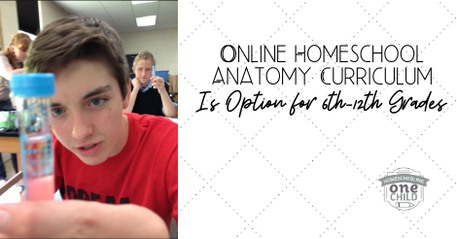 Learning a tough subject is made easier with a great teacher that helps make the subject interesting. Anatomy and Physiology is no different. Disclosure: This post is sponsored by College Prep Science. Copyright 2020 by Greg Landry. Greg Landry’s online homeschool Anatomy & Physiology Curriculum Class offers a full year (two-semester) option for 9th – 12th grade homeschooled students and a half school year (one semester) options for 6th – 9th grade homeschooled students. Professor Landry is a former college professor – he designed and ran a gross anatomy (cadaver) lab for junior-level pre-med college students. Over the past 20+ years, he has taught science to thousands of homeschooled students. His students love his online classes that are filled with teaching and stories from the trenches (cadaver tanks) that make anatomy and physiology come to life! The classes cover the anatomy and physiology of all human systems plus the insight that can only come from working with cadavers. His online classes also include time in his virtual anatomy and physiology lab to perform experiments and write lab reports. Anatomy and physiology is interesting to most students because they’re learning about themselves but it tends to most interesting to students who are leaning towards fields such as: medicine (medical doctor), nursing, athletic training, chiropractic, physician’s assistant, pharmacy, nurse practitioner, exercise science, massage therapy, sports medicine, physical therapy, etc. Professor Landry believes that studying human anatomy and physiology is illuminating God’s Creation and that it reveals His glory. - Human Anatomy & Physiology (9th-12th) - Two Semester Class - Pre-Anatomy & Physiology (6th-9th) - One Semester Class In the words of a homeschool parent… "Greg, ...what you did for our daughter will have far-reaching effects. You showed her that learning can be enjoyable..." Thankful in Indiana Jim H. Professor Landry also offers homeschool anatomy and physiology/biology in-person two-day lab intensives at 15 locations throughout the U.S. These intensives enable students to complete a full year of anatomy and physiology/biology labs in just two days – while enjoying the process! Homeschool dad, scientist, and former college professor, Greg Landry, offers live, online homeschool science classes, Homeschool ACT Prep Bootcamp, the Homeschool Mom’s Science Podcast, in-person two-day science lab intensives nationwide, freebies for homeschool moms, and student-produced homeschool print publications. |
AuthorTerrie Bentley McKee is an author and speaker who homeschools her youngest daughter. Married to her husband Greg, they have four children, all of whom have special needs of varying degrees. Terrie is a follower of Jesus Christ and tries to glorify God in all she does. To read more about her testimony, click here. Affiliate LinksHomeschooling One Child is a participant in the Amazon Services LLC Associates Program, an affiliate advertising program designed to provide a means for sites to earn advertising fees by advertising and linking to amazon.com. Check out our YouTube channel!Check out our podcast!Please pin!Archives
January 2024
Categories
All
|
- Home
- Blog
- Podcast
-
Resources
- Teach What is Good Devotional
-
Convention Resources
>
- Homeschooling a Teen with Autism
- Tips on Creating a Disability-Inclusive Church
- How to Teach Your Exceptional Child about Faith
- Homeschooling Preschoolers with Autism
- How to Pick Developmentally Appropriate Curriculum for your Autistic Child
- Overwhelmed
- Homeschooling One Child
- Life Skills Chickens
- Strategies on Homeschooling Kids with Special Needs
- About Us >
- Vlog
- Homeschooling News
- Printables
- Special Needs
- Curriculum
- Encouragement
- Home Management >
- History
- Science
- 25 Days of Advent
- Courses
- Store
(C) 2023 Terrie Bentley McKee ALL RIGHTS RESERVED
- Home
- Blog
- Podcast
-
Resources
- Teach What is Good Devotional
-
Convention Resources
>
- Homeschooling a Teen with Autism
- Tips on Creating a Disability-Inclusive Church
- How to Teach Your Exceptional Child about Faith
- Homeschooling Preschoolers with Autism
- How to Pick Developmentally Appropriate Curriculum for your Autistic Child
- Overwhelmed
- Homeschooling One Child
- Life Skills Chickens
- Strategies on Homeschooling Kids with Special Needs
- About Us >
- Vlog
- Homeschooling News
- Printables
- Special Needs
- Curriculum
- Encouragement
- Home Management >
- History
- Science
- 25 Days of Advent
- Courses
- Store
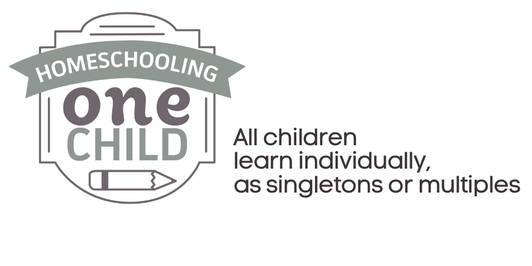
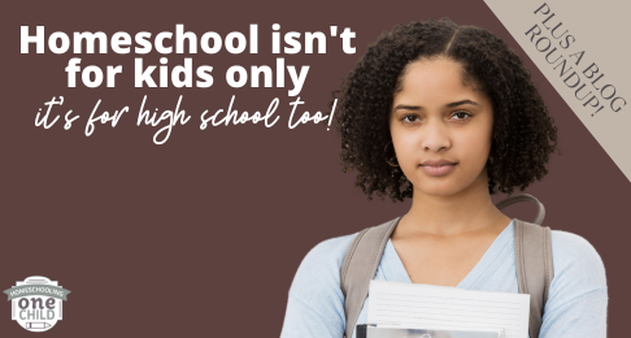


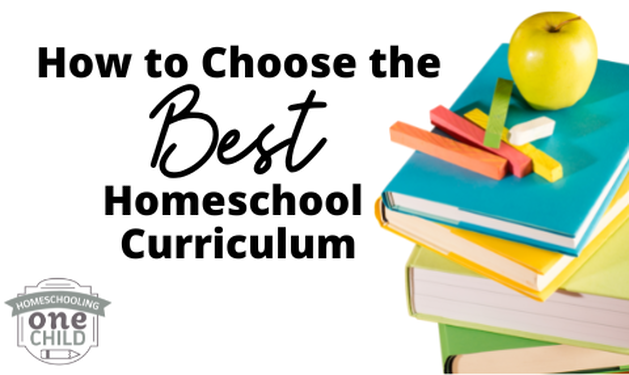

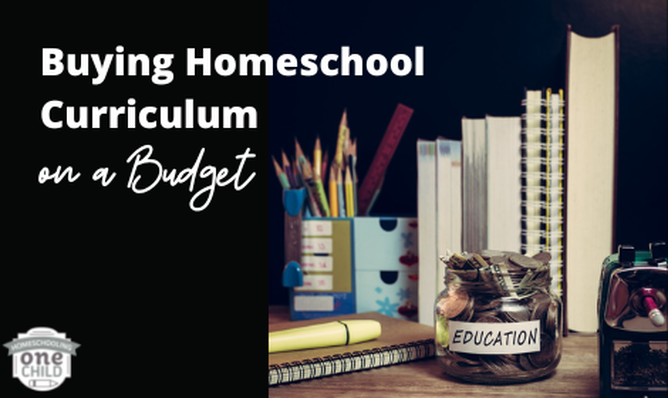
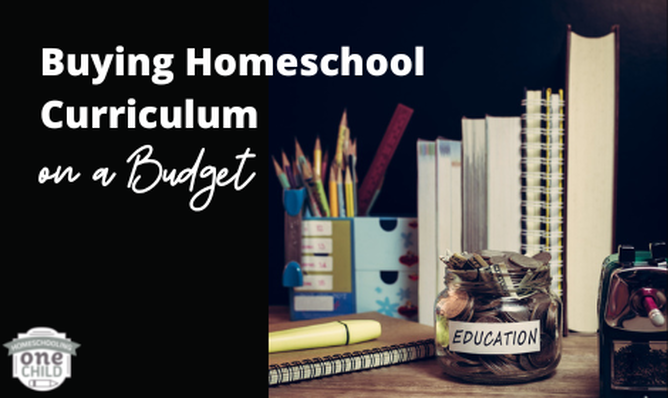
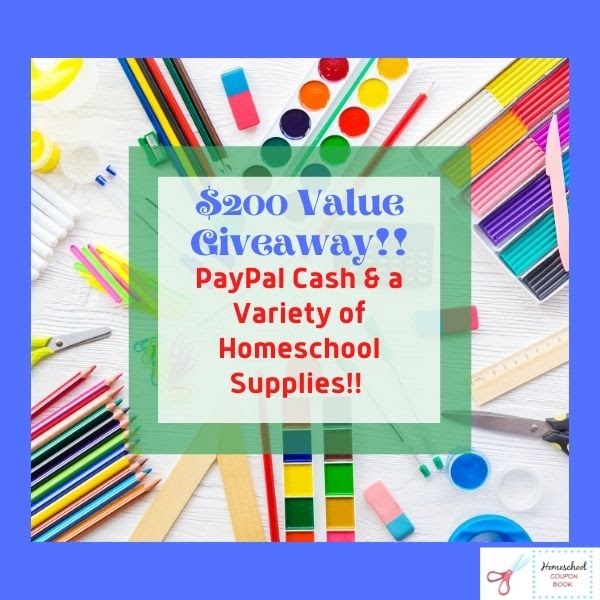
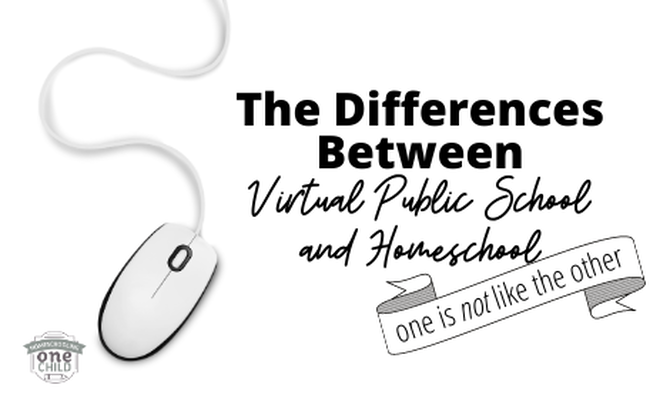
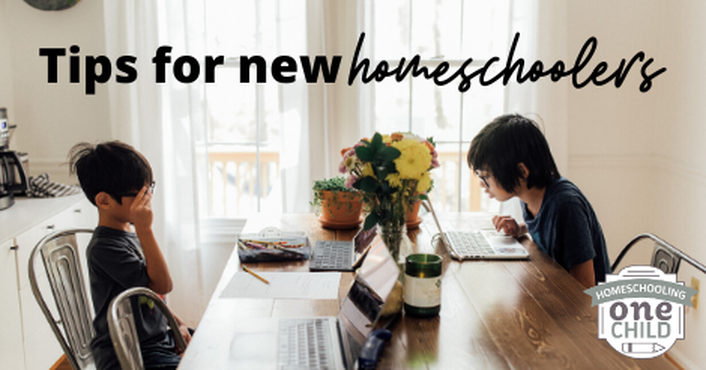
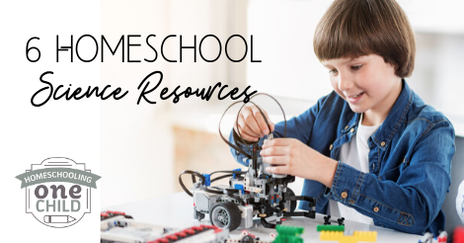
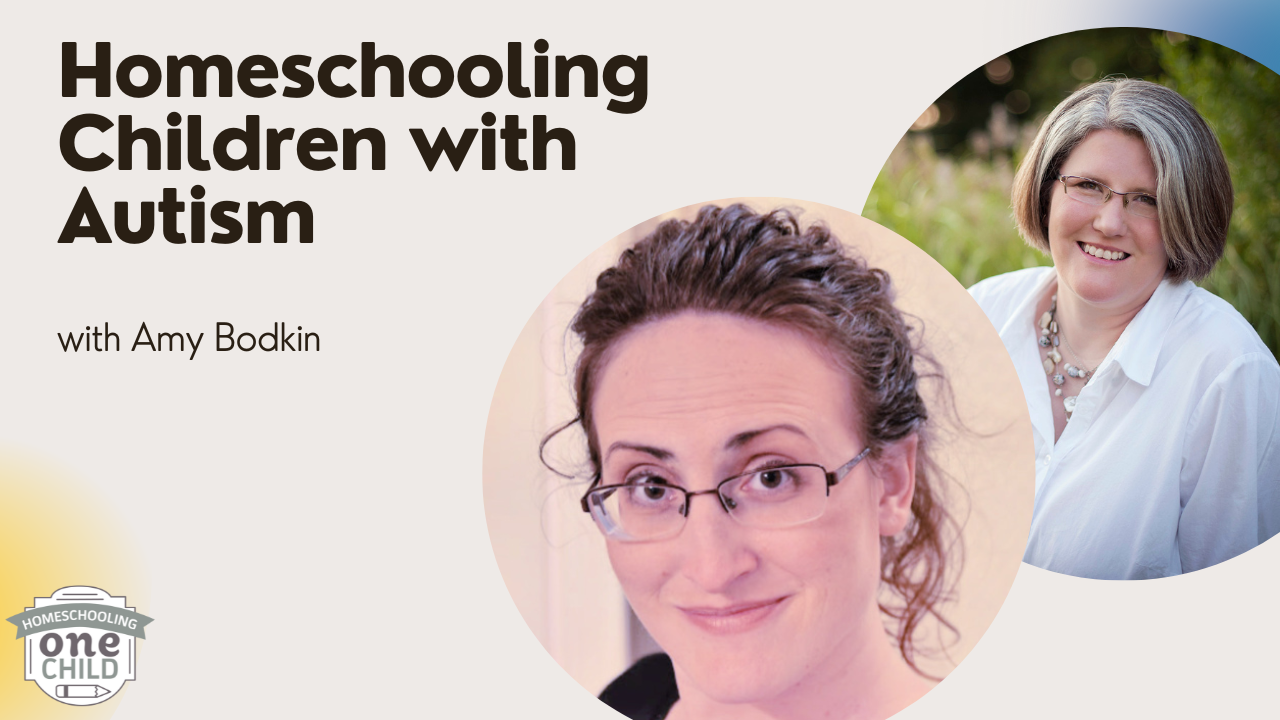
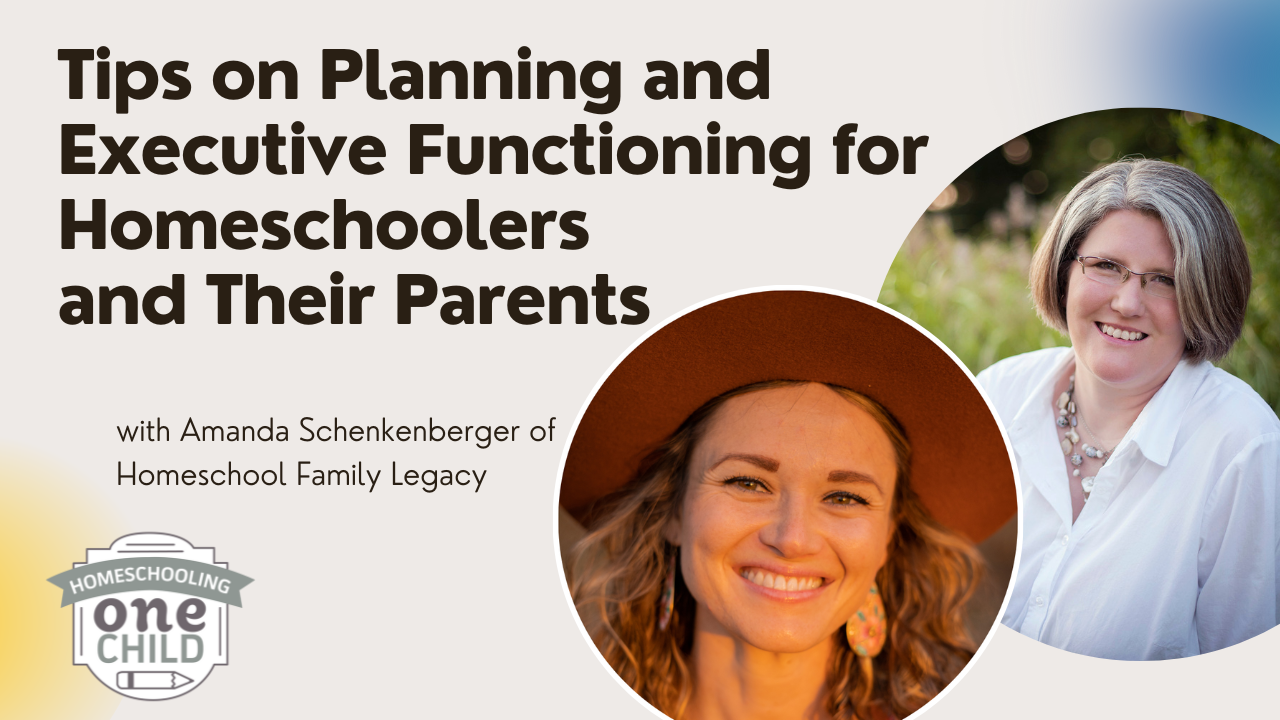
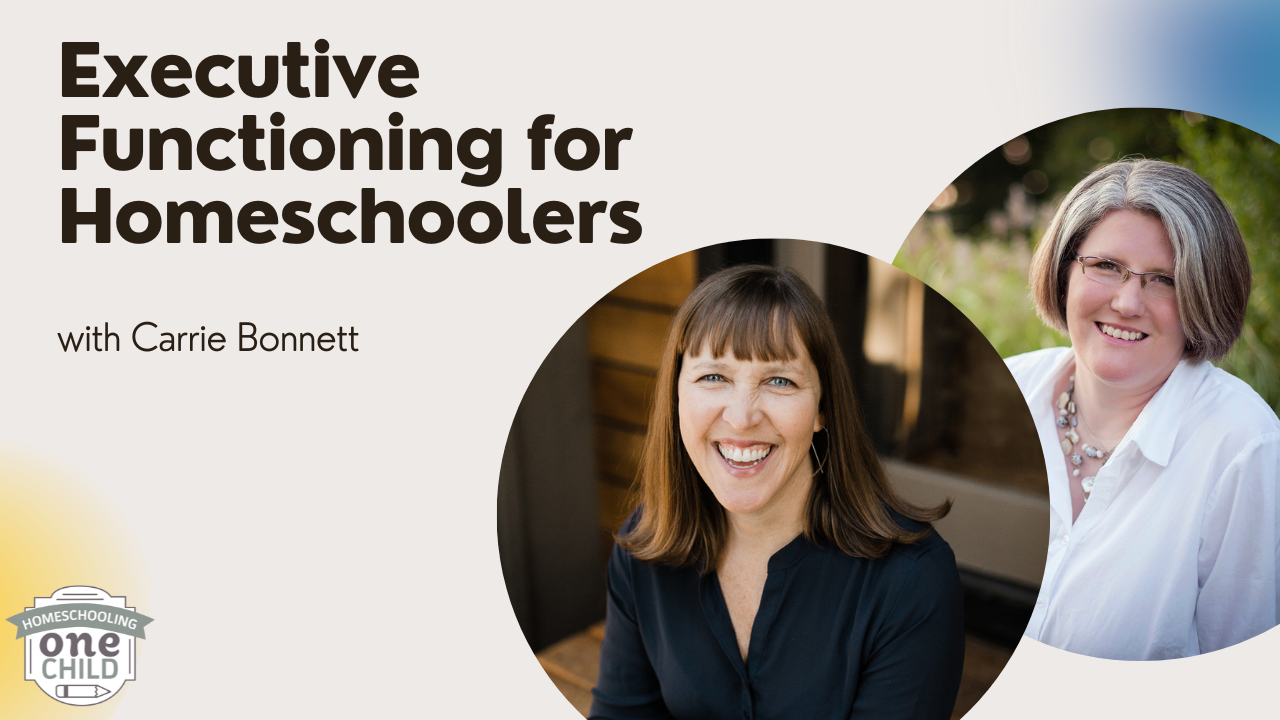
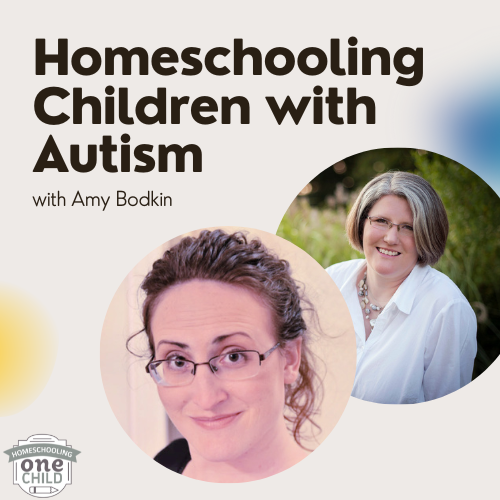
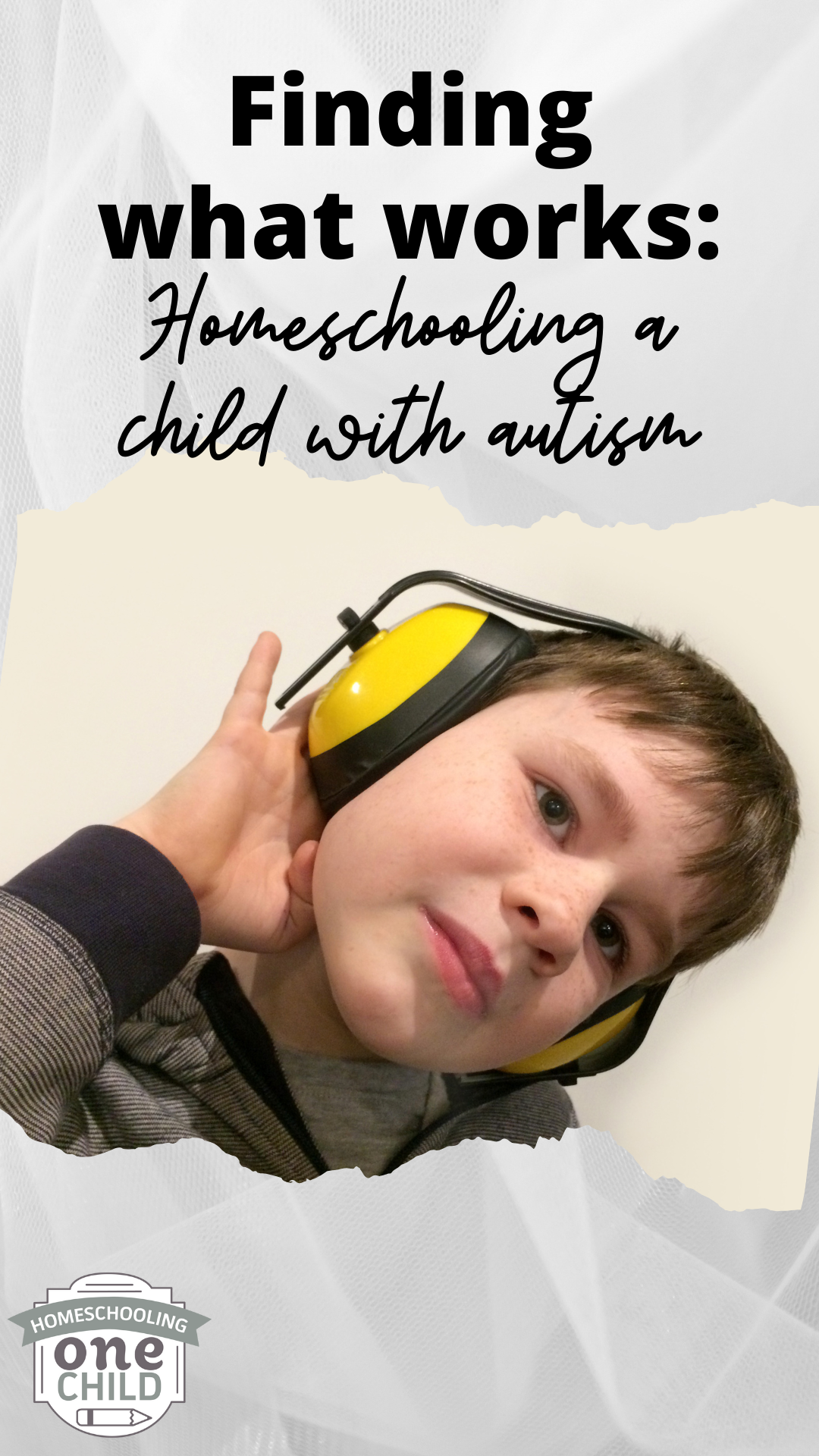
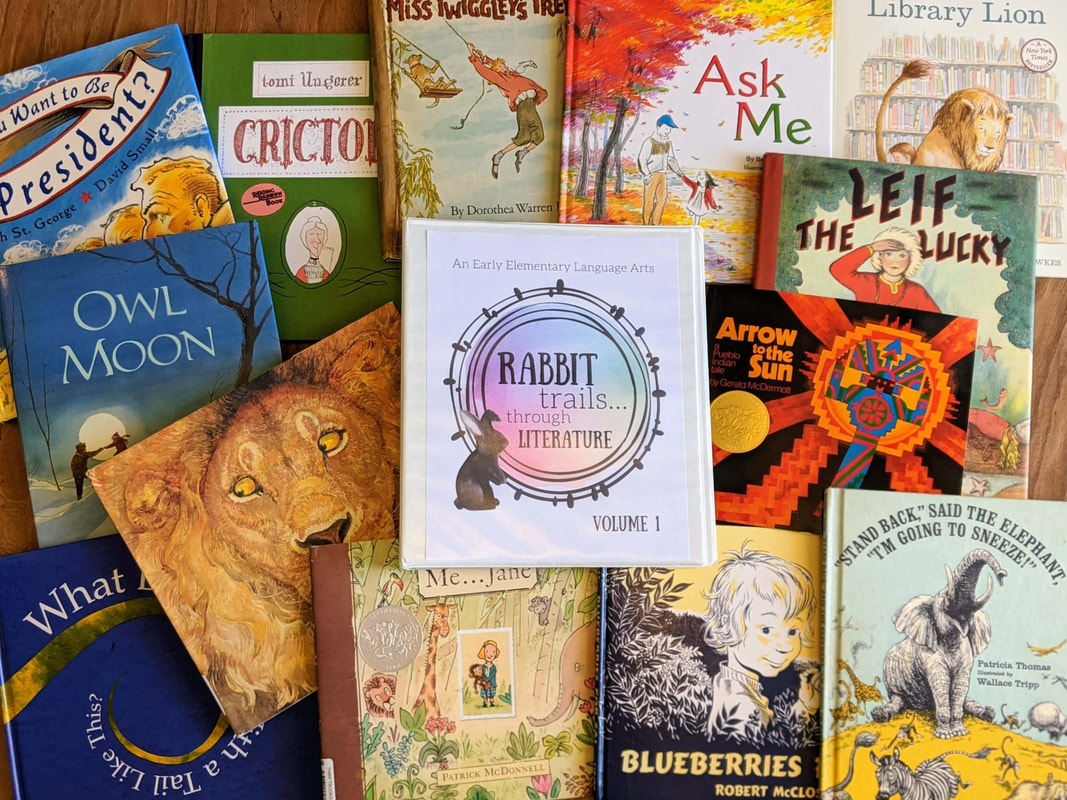
 RSS Feed
RSS Feed
